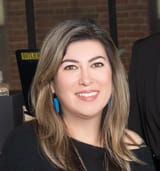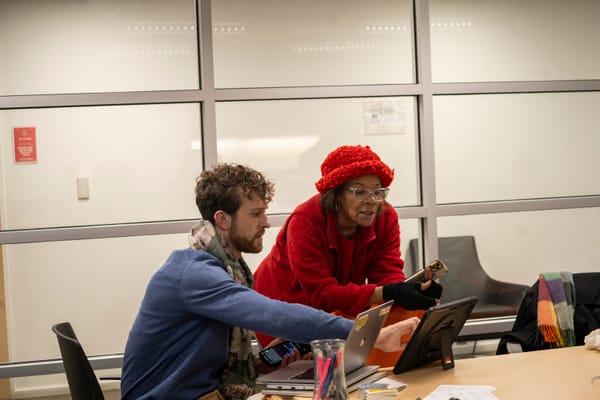Turns out less news is better news. Here's why.

I've come clean already about my newly hard core news diet. How hard core? Pre-body positivity, 1980s grapefruit-diet.
I'm off social media completely, checking local news online once in the morning, and national news one to two times a day. I work in a newsroom, so I pay close attention to information and links being gathered from across the ether and sent around on Slack. But I'm not taking in any radio news, TV news, podcast news. I feel great.
These habits might have prepared me to take in more, and more complicated or more emotional information. There might be, in fact, an inverse relationship between the amount of news I take in and my ability to navigate, believe, and use that news. This is especially true when the subject of that news is difficult or frightening.
We revisited last week how digital attention-mining media properties like Gawker, Buzzfeed built themselves into habit-forming media. These tactics pale in comparison to how social media platforms have trained us for near-constant “engagement” on their platforms.
I've read a few papers recently on the consequences of these habits, news overload and news avoidance. They've helped me to understand both the format and the frequency of news might be keeping people from engaging with high-quality and reliable information around climate change and migration.
Let's get started with some definitions of some fundamental concepts at work here. I'm primarily using a meta analysis of 17 studies from across the globe on news avoidance here, done by Jinghong Xu and his colleagues.
Affective load: emotional processing capacity as a function of uncertainty and the feeling of time pressure.
Cognitive load: mental processing capacity.
Information overload: people's attention and decision-making power being compromised by taking in large amounts of information. People's attention, decision-making power and mood are all negatively impacted by information overload.
News avoidance: this can be either intentional or unintentional. Intentional news avoidance is driven by an active dislike of the news and unintentional news avoidance is driven instead by preferences for other things that are not news, like entertainment. Xu et al. found information overload can cause news avoidance.
News-find-me behavior: people deciding to get information passively, either from connections on social media or the algorithms on these platforms. There has been a negative relationship between this behavior and knowledge on subjects from COVID-19 to reproductive health.
There's some additional interesting nuance on what news avoidance caused by information overload looks like. The people involved in these studies both ignored and filtered more news, retreating into more partisan spaces where information is framed in more predictable ways.
Speaking of predictable framing; here is yet another example of damage done by profit-driven news companies increasing production to compete for attention.
So what might we do?
I have a few ideas, but what are yours? Let's talk about it!
First and foremost, local news organizations should organize coverage around information needs. Even people who exhibit news-find-me behaviors seek out information they need.
Increasingly personalized news should be optimized for trust. That should mean less frequent pushes and consistent entreaties for the audience to tell news organizations what they want and need.
Beyond that, what if nonprofit media started running ads telling people to take breaks from the news, and why. "You should check the news just once a day, and when you do, we hope you'll check (insert the name of your news org here)." How about a welcome series that has some news and info hygiene tips in there? Why not?
I also really like the gentle guidance I've seen from Issac Saul in his newsletter, Tangle. The entire structure of his newsletter takes the overwhelming news environment as a given. He's a guide through this confusing landscape, one issue at a time. The way he navigates through information and rhetoric without oversimplifying is impressive.
Should we all tell audiences what they can expect from our coverage at the top of every story? Can we make our information more digestible this way without skimping on information?
What else can we do differently to help people take better care of themselves by exposing themselves to less news? How can we help our audiences tune in when it matters and turn away at other times? And last question, will I feel like I ate a full bag of Doritos in one sitting if I get on BlueSky?




